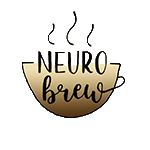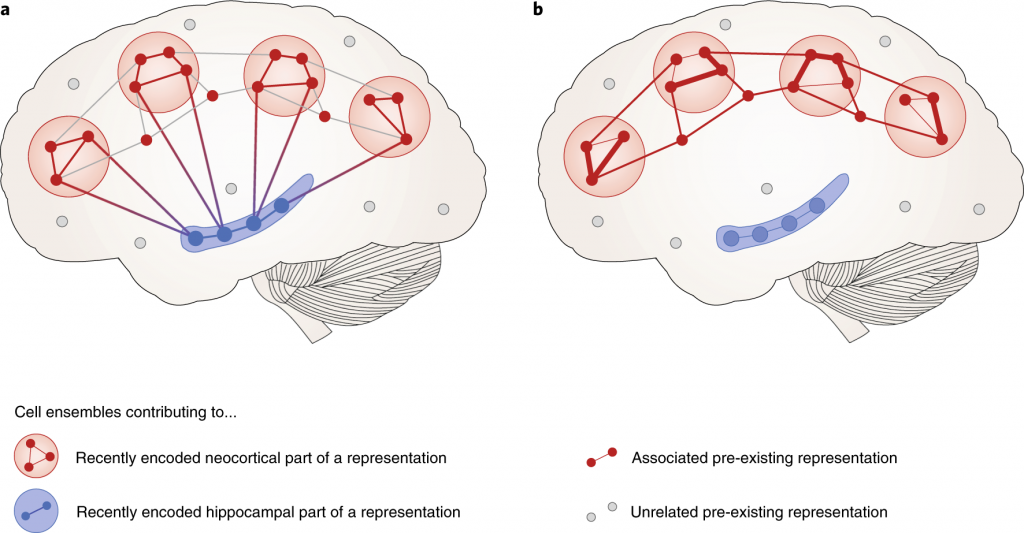Strange Study Hacks Supported by Neuroscience
You’ve got hundreds of notecards to cover for an exam at the end of the week. You find yourself losing interest and forgetting what you just read on the card before, but you keep powering through the deck. It has taken you hours to get through the same set of cards, and you know you’ll probably forget half of them by tomorrow. You reach for another cup of coffee because you’ve just got to get through these. It’s the only way… right?
Neuroscience to the rescue: there is a better way out there. In fact, there are multiple study techniques that are more efficient than mere repetition. And most of them are easier, too. It’s not magic, and it’s not cheating. It’s merely taking advantage of your brain’s hidden powers.
1. Use Your Other Senses
Huh? Yes, you read that correctly. The key to learning and memory is making connections between ideas, or “building bridges.” In order to improve your memory, you need to construct more bridges between concepts. You build bridges by creating associations.
One way to do this is by incorporating your senses. For instance, let’s say I’m learning neuroanatomy. While you may think that the best way to learn this subject is through rote memorization, we can make the process more efficient by linking the material to our senses. Studies show that smell, in particular, can enhance memory. Smell is likely more powerful at provoking memories than our other senses, likely due to its direct access to the hippocampus (a brain region involved in memory). So powerful is our sense of smell that it actually seems to have the ability to vividly evoke long-lost memories, a phenomenon known as the Proust Effect.
Now let’s look at how to apply this. Maybe I want to associate the scent of lavender with the neuroanatomy material I’m learning. Every time I review the subject, I might wear a lavender essential oil or even put a few drops in a diffuser. Maybe I also use a blue pen or blue notecards when I’m learning and studying it to increase context specificity even more. The more I use lavender and blue cards while studying history, the stronger the association becomes. Taken together, the context has become increasingly specific, which ties into the next study hack: recreate the learning environment.
2. Recreate the Learning Environment
As we’ve learned, context is important when learning and remembering new information. Our brains pay attention to what’s around us as we take in novel data. This is a survival tactic that evolved ages ago when our primary daily tasks were to find food and fight off predators. The more attention we paid to context, the more likely we were to remember where we were the last time we encountered that saber-toothed tiger or what we were using when we accidentally created fire, both of which allowed us to see sunrise. Of course, that brain mechanism isn’t too relevant when we’re sitting in a lecture hall learning about the structure of the humorous bone – but there’s no reason not to take advantage of it.
An early study on this topic published in 1975 discovered that recreating the learning environment during testing could aid memory recall, and it did so using a really fun experiment design. There were two groups assigned to learn the same vocabulary words, and each group learned the words either on land or while underwater (luckily, in scuba gear; “ability to hold your breath for long periods of time” was not one of the criteria). Later, when the individuals were tested on the vocab, some individuals were tested in the same environment as the learning period, and some were tested in the opposite environment. It turns out that the people in the former group, who were tested in the same environment in which they learned the words, scored higher overall than those who were tested in a different environment.
Assuming none of you are learning U.S. history during a deep-sea excursion, how can you practically apply this to your life? Sit in the same part of the classroom or lecture hall every class, and take the exam there, too. For example, if you always sit in the back of the class, don’t take the exam in the front of the class. Additionally, as aforementioned, smell is a significant part of one’s environment, so perhaps you always bring a drink with a specific odor (taste plays a role in context, too!). Or, maybe you wear the same essential oil or perfume during lecture and while studying. This study among others has found that also having that scent present while sleeping can further aid memory consolidation.
3. Make a Mnemonic that’s Emotional, Bizarre, and Personal
For this one, I can knock out four hacks at once: come up with a mnemonic for the material and make it emotional, personal, and bizarre.
The point of the mnemonic is to reduce the mental load of the information. Short term memory only has the capacity for roughly 7 meaningful items – that’s not very useful if you need to memorize 200 notecards in one sitting. Now, try to choose words with emotional connotations. Perhaps intuitively, we remember emotional content more than we do non-emotional content. Something like anatomy can be easily forgotten because there’s not a whole lot of emotion inherently involved. Curse words also work great because our brains like taboo things (I don’t make the rules).
Furthermore, choose words that are personal to you. Your brain is somewhat selfish in that it cares more about information relevant to you in order to ensure your survival. By making it personal, you’re also anchoring newly learned information to an already stable memory in your brain, and this association will help you to better access that new information.
Lastly, make it bizarre. Something like “neon green hippopotamus” is more attention-grabbing than “hippopotamus,” and the more attention that is paid to an item, the more likely it’ll be remembered. I’ll provide an example (sans the curse words).
Perhaps I’m studying for a neuroanatomy exam, and I need to memorize the details of cranial nerve 5: “Cranial Nerve Five is Trigeminal, and it innervates the face.” The underlined letters are the ones that I’ll use for my mnemonic. I might say, “Cocoa Never Fears Tiptoeing Flamboyantly,” which can be abbreviated to “CNFTF.” By including the name of my childhood dog and using words like “fear” and “flamboyantly,” I now have a strange, personalized, amusing image in my head (you don’t have to use words that are the names of emotions like “fear” as long as your sentence produces an emotion, whether it’s a positive or negative one, though negative emotions are better recalled).
All I really need to focus on memorizing is “CNFTF,” and the rest should come more effortlessly. In a way, I’ve built several “bridges” in my brain connected to this information, thus all of this together should increase the likelihood that I consolidate and remember the material.
4. Go to Sleep
Arguably the best study hack of all? Sleep. The benefits of getting a full 7-8 hours of sleep are numerous but a major one is memory consolidation. While we sleep, our brain cells replay or rehearse information from the previous day, and that information is thought to be moved from short-term memory to long-term memory. Sleep sort of acts like glue: it integrates information into a cohesive network. This naturally occurring process is going to be way more effective than staying up all night learning new information before a test – most of that information will be lost because it doesn’t get the chance to be consolidated.
So study in advance and let your brain do the heavy-lifting during your nightly slumber. If you do procrastinate and must stay up to review, make sure to squeeze in a short nap, as research has identified some positive effects on cognition and performance resulting from as little as 30-90 minutes of sleep.
Let me stress that rehearsal of information (such as with notecards) is still required to learn new information. These hacks are just potential ways to better consolidate and remember that information. If you have a great memory as it is, or if the subject you’re learning comes naturally to you, then these tips may not be necessary. Plus, the research doesn’t guarantee that you’ll ace your exam because it doesn’t prove a definite link between these hacks and improved test scores – much more research is needed for that. But if the subject material is difficult and there’s a ton of it, then it certainly can’t hurt to test out these hacks for yourself!


Thanks!
My partner and I stumbled upon this different web address and decided to check it out. Nice post, I found it both new and challenging.
You have a very engaging writing style, and I love what you have to say. Maybe you could add a bit more content to help readers connect with your message even more.
I appreciate the valuable information you provide in your articles.
Hi there! I came across this post and it reminds me of my former roommate who used to always talk about similar topics. I’ll definitely pass this on to him. Thank you for sharing!
I really enjoyed reading this post, thank you! Fantastic job!